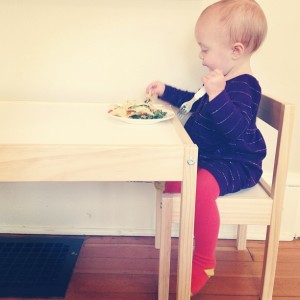When newborns come into the world their brains are impressively hardwired to take in abundant information. They miraculously take in their first breath, eat and digest milk or formula and just a few months later, move onto solid foods that they learn to chew with newly sprouted teeth. They begin to hold objects both large and small. They learn to roll over, then crawl, then stand and finally walk. It’s amazing how much a little person can accomplish in such a short period of time. During the first year of life, babies develop and absorb more than at any other time in life.

©FF
Research shows that a baby’s brain is designed to be extremely receptive to experience. With each experience, babies gain a broader understanding of their world. A newborn’s brain is about 25 percent of its approximate adult weight. But by age 3, it has grown dramatically by producing billions of cells and hundreds of trillions of connections, or synapses, between these cells.
While we know that the development of a young child’s brain takes years to complete, we also know there are many things parents and caregivers can do to help children get off to a good start and establish healthy patterns for life-long learning.
Here are some resourceful links on the amazing baby brain and what you can do as a parent to stimulate and nurture your wee one’s development:
Nutrition and Brain Development in Infants, Toddlers and Pre-schoolers
Infant Brain Development – Activities to Stimulate and Nurture
20 Ways to Boost Your Baby’s Brain Power
Getting Sharp. Want a Brainer Baby?
How Play Can Enhance Social and Cognitive Development